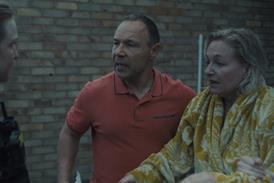The Trust has greenlit the first phase of the Digital Media Initiative (DMI), the corporation-wide overhaul of infrastructure and work processes intended to enable collaborative multi-platform production.
In an email sent to all BBC staff, future media and technology director Ashley Highfield said moving from work conducted predominantly on tape to shooting content on HD cameras straight onto memory cards would open up a “world of possibilities”. The plan is to make archived content available on the desktop of any member of BBC staff in any BBC office in any part of the world.
“It is the single most important initiative we are working on,” Highfield said. “Without DMI, we simply can't deliver many of our planned exciting new on-demand services.”
A five-year, staggered roll-out of new technology will start this autumn in conjunction with technology partner Siemens. It will begin with the natural history unit, children's and sport.
BBC news, radio production and Glasgow's Pacific Quay have begun a digital overhaul and will be linked into DMI later.
“We will begin with those genres that are driving toward multi-platform and those starting to bank HD content,” said BBC Vision Studios technology controller Jon Attard.
“In phase two, DMI will extend to other genres and regional sites. Key technical challenges to meet the needs of Media City at Salford and external post-production and production suppliers will be assessed.”
A third phase will take the project to completion in 2012. The results of phase one will be presented to the Trust for its approval for funding of further phases of the project. All aspects of production will be unified by a common search tool which will allow richer and speedier access to content for internal producers and eventually to members of the public.





























No comments yet